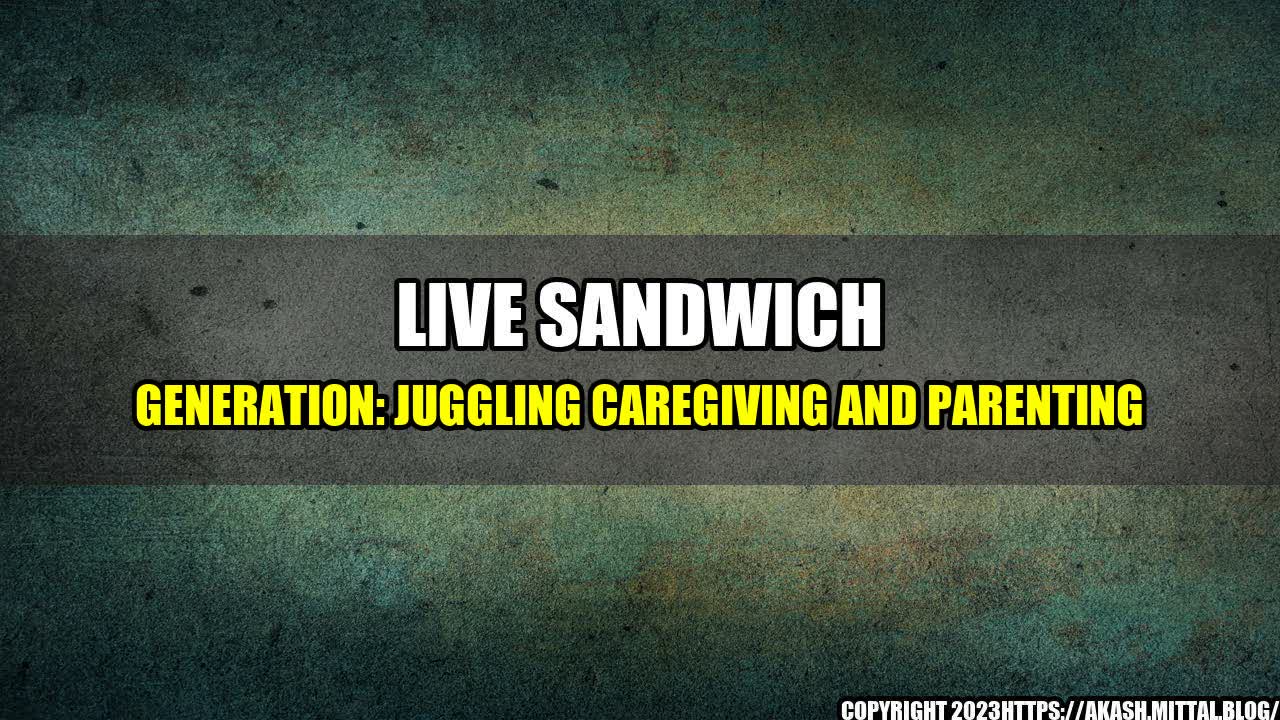Being a caregiver for an elderly parent while raising children can be a challenging and overwhelming experience. The term "sandwich generation" was coined to describe the generation of adults who are "sandwiched" between caring for their aging parents and their own children. According to a 2019 survey by the Pew Research Center, one in seven adults is providing financial support to both an aging parent and a child.
It's not just the financial burden that can be difficult, but also the emotional toll of juggling caregiving and parenting responsibilities. Many individuals in the sandwich generation struggle to balance work, family, and caregiving duties, leading to stress, burnout, and even depression.
A Personal Story
Meet Sarah, a 42-year-old mother of two who is also caring for her 75-year-old mother who suffers from dementia. Sarah works full-time as a nurse and is the primary breadwinner for her family. Her husband works part-time and helps with the caregiving responsibilities, but it's still a lot for Sarah to handle.
On a typical day, Sarah wakes up early to help her children get ready for school, then goes to work for a 12-hour shift. After work, she picks up her kids from school, helps them with homework, and prepares dinner for the family. Then, she checks on her mother, who lives in an assisted living facility, before heading to bed.
On the weekends, Sarah spends most of her time caring for her mother, taking her to doctor's appointments, and ensuring that she is comfortable and well-cared for. It's a demanding and emotionally draining schedule, but Sarah does it out of love for her family.
- According to a 2020 report by the AARP, 48% of caregivers in the United States are juggling caregiving responsibilities with a job.
- Another AARP report found that caregivers who work lose an average of $303,880 in lost wages and benefits over their lifetimes.
- A study by the Family Caregiver Alliance found that caregivers who are also parents experience higher levels of stress and depression than non-caregiver parents.
How to Cope with the Challenges of the Sandwich Generation
Here are three practical tips for coping with the challenges of the sandwich generation:
- Take care of yourself: It's easy to neglect your own needs when you're juggling multiple responsibilities, but it's important to prioritize your own physical and emotional health. Make sure to exercise regularly, eat a balanced diet, get enough sleep, and seek emotional support when you need it.
- Set boundaries: It's important to set limits on your caregiving and parenting responsibilities to prevent burnout. Communicate your needs to your loved ones and seek outside help when necessary. Don't feel guilty for taking a break or asking for assistance.
- Find support: Join a support group for caregivers to connect with others who understand what you're going through. You can also seek professional counseling or therapy to help cope with the emotional toll of caregiving.
Conclusion
The sandwich generation faces unique challenges that can be stressful and overwhelming. However, by taking care of yourself, setting boundaries, and finding support, you can successfully manage the responsibilities of caregiving and parenting. Remember, you are not alone in this journey.


Curated by Team Akash.Mittal.Blog
Share on Twitter Share on LinkedIn